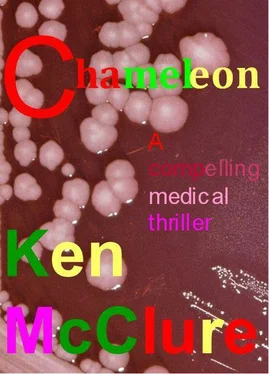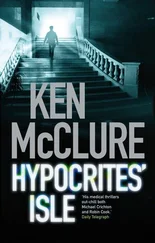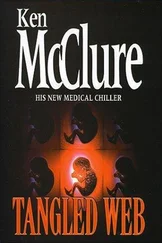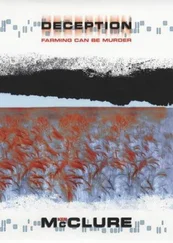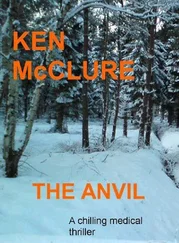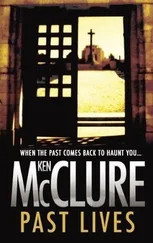Ken McClure - Chameleon
Здесь есть возможность читать онлайн «Ken McClure - Chameleon» весь текст электронной книги совершенно бесплатно (целиком полную версию без сокращений). В некоторых случаях можно слушать аудио, скачать через торрент в формате fb2 и присутствует краткое содержание. Жанр: Триллер, на английском языке. Описание произведения, (предисловие) а так же отзывы посетителей доступны на портале библиотеки ЛибКат.
- Название:Chameleon
- Автор:
- Жанр:
- Год:неизвестен
- ISBN:нет данных
- Рейтинг книги:4 / 5. Голосов: 1
-
Избранное:Добавить в избранное
- Отзывы:
-
Ваша оценка:
- 80
- 1
- 2
- 3
- 4
- 5
Chameleon: краткое содержание, описание и аннотация
Предлагаем к чтению аннотацию, описание, краткое содержание или предисловие (зависит от того, что написал сам автор книги «Chameleon»). Если вы не нашли необходимую информацию о книге — напишите в комментариях, мы постараемся отыскать её.
Chameleon — читать онлайн бесплатно полную книгу (весь текст) целиком
Ниже представлен текст книги, разбитый по страницам. Система сохранения места последней прочитанной страницы, позволяет с удобством читать онлайн бесплатно книгу «Chameleon», без необходимости каждый раз заново искать на чём Вы остановились. Поставьте закладку, и сможете в любой момент перейти на страницу, на которой закончили чтение.
Интервал:
Закладка:
The man stepped back from the scene and took off the apron. He laid it on the ground and folded it inwards so that the blood was to the inside then he placed it inside a plastic bag and returned it to the briefcase. The instruments were wrapped and placed in another plastic bag. Gloves were placed in yet another and the case was closed.
Without looking back at the body, the man moved off through the shrubbery but only to freeze at the suggestion of a flashing light somewhere through the trees. He crouched down in the long grass near the railings and waited as the light grew brighter and nearer. It was blue.
A Police Panda car cruised slowly down the road with its two occupants looking impassively out of its windows. The man knew that they were looking for the yobs. The driver of the bus or the hospital where they had taken the injured passenger would have reported the incident. The police would cruise around the streets, advertising their presence but that would probably be all, until of course, the woman was found. Then all hell would break loose.
When all was quiet again and the car had turned the corner at the end of the road, the man climbed quickly over the railings and resumed the confident, purposeful gait normally expected of a man who carried a briefcase.
SIX
Jamieson returned to his room in the residency at nine. He had gone into the city to eat, feeling that he needed to get away from the hospital for a while. He had found an Italian restaurant with enough atmosphere to divert his attention briefly from the rain outside thanks to canned music and sunny travel posters but now he was back in the cloistered confines of Victorian stone and inadequate heating. He felt the radiator under the window and decided that it was on — although he would have been loath to put money on it. He even considered that his hands might be heating it rather than the other way around. He checked the pipes leading into the radiator and was reassured to find that the inlet was marginally warmer than the outlet.
Why was it such a big deal in this country, he wondered, to have a heating system that worked? Was this something the British had missed out on while they had been inventing the steam engine and television, anaesthetics and radar? Or was it the result of some innate belief that discomfort was good for the soul? A legacy of the reformation perhaps? Hard work, cold showers, and cross country runs had all played their part in his own formative years at school and he had been brought up to believe that medicine always had to taste nasty before it could do any good. Had this all been part of a planned preparation for life in a country where houses were perpetually cold and damp and hotels always had 'a problem with the hot water'? Or was being on his own in a strange city, looking out at the rain getting to him more than he cared to admit?
Jamieson had phoned Sue earlier in the evening to say that he loved her and was missing her so he felt that he could not call her again to say exactly the same thing. But what he would do, he decided, was go home at the week-end and tell her how much he missed and loved her.
The telephone rang and startled him. Half hoping it was Sue he lifted it to hear Carew's voice.
'They are carrying out the post-mortem on Mrs Jenkins this evening. I thought you might want to attend?'
Jamieson looked at his watch and saw that it was half past nine. 'This is a bit unusual isn't it?' he asked.
'We thought it best to make absolutely sure that it was the Pseudomonas that was responsible for her death as quickly as possible.'
Jamieson said that he wanted to be there.
'The PM room is attached to the mortuary,' said Carew.
'Where's that?'
'Near the East gate. There's a clump of trees to your left as you approach the gate. The mortuary is behind them.'
The rain had stopped as Jamieson left the residency but an unpleasant wind had arisen to take its place. It blew directly into his face as he walked down the three hundred metres or so to the East gate. He was showered with water as he passed under the clump of trees when a particularly strong gust of wind caught their branches. The trees were there to shield the mortuary from public view.
As he brushed the water from his shoulders, Jamieson reflected on just how important a role psychology played in the treatment of illness. Trust and confidence were essential ingredients in the formula. If a patient entered hospital feeling that he or she were in the best place for their treatment and that success was almost guaranteed then half the battle had already been fought and won. There could be no more poignant reminder that failure was an ever present possibility in hospitals than the silent, forbidding presence of a mortuary
Jamieson tried the front door and found it locked. He walked round the outside of the building in a clockwise direction until he found a small, blue door at the back. It was unlocked. He entered to find himself alone in a sparsely furnished room with a row of coat pegs hung with gowns and aprons and an assortment of Wellington boots lined up under a wooden bench below. Assuming that the PM was already under way, he took off his jacket and hung it up on a vacant peg. He found a pair of boots his size and helped himself to gown and apron. He couldn't fasten all the gown ties himself because they were at the back but for this purpose it was not going to matter. He did the best he could then opened the door to the interior to find himself in a hallway.
There were three doors leading off it but light was coming from under only one. He knocked and entered. It was the post-mortem room. There were three pedestal tables, arranged side by side in the room but only one was in use. Two powerful lamps above it augmented the strip lighting on the ceiling and an instrument trolley serviced the needs of the pathologist who was working alone. He looked up from the table and said, 'You must be Jamieson. They told me you might come along. I'm Vogel.'
Jamieson estimated that Vogel was in his late fifties, grey haired and bespectacled and with a moustache that drooped at the corners. His gown was tied tightly enough to emphasise the size of his paunch and his sleeves were rolled up far enough to reveal powerful arms with thick wrists. His left one carried a large, stainless steel wrist watch.
Jamieson joined Vogel at the table and saw that the pathologist had already opened up the body of Sally Jenkins. He was removing some of her internal organs. 'Look at that,' said Vogel, holding up a handful of tissue which Jamieson could not recognise out of context. 'What a mess.'
'Was it a Pseudomonas infection?' asked Jamieson.
'No doubt about it. You can smell it.'
Jamieson saw that Vogel was serious and moved closer still until he noticed the same smell of new-mown grass that had come from the culture dish in the lab. 'So you can' he said.
'Just look at the damage here,' said Vogel. He held up the diseased tissue and invited Jamieson to examine it. Jamieson was reluctant to add to the already overpowering assault on his senses of sight and smell. He had never liked pathology. He nodded and looked down at the marble white face lying on the table as Vogel sluiced some of the mess down the drain channels with the aid of a hand held hose which he removed from a holster at the head of the table. She seemed so young.
'There are half a dozen infections I can tell by smell,' said Vogel. 'Pseudomonas is one of the easiest.'
'You've come across it a lot then?' asked Jamieson.
'Thirty years ago and before I became a pathologist, I worked in a burns unit. Pseudomonas was the scourge of burns cases at the time. Once it got into the wounds there was practically nothing we could do. A lot of people died in a lot of pain because of this damned organism. Nowadays we have the drugs to deal with it. We don't often see something like this.'
Читать дальшеИнтервал:
Закладка:
Похожие книги на «Chameleon»
Представляем Вашему вниманию похожие книги на «Chameleon» списком для выбора. Мы отобрали схожую по названию и смыслу литературу в надежде предоставить читателям больше вариантов отыскать новые, интересные, ещё непрочитанные произведения.
Обсуждение, отзывы о книге «Chameleon» и просто собственные мнения читателей. Оставьте ваши комментарии, напишите, что Вы думаете о произведении, его смысле или главных героях. Укажите что конкретно понравилось, а что нет, и почему Вы так считаете.
